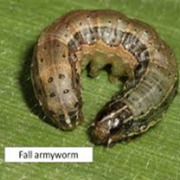Speeches Shim
The United States Government is supporting 40 entrepreneurs in Benin to promote handwashing and affordable sanitation and hygiene products as part of its support to COVID-19 response. Through the U.S. Agency for International Development (USAID), the United States is working with the entrepreneurs to promote and sell their products to limit the spread of the virus. Produced locally, the products include affordable handwashing stations, hand sanitizer, toilets, disinfectants, and masks to expand access to disease prevention tools.
The United States Government is contributing to the protection of 124,000 children from malaria by providing preventive medication to families in the departments of Alibori and Atacora between July and October.
The United States Government announced $4.5 million, equivalent to 2.7 billion CFA, on May 20, 2020 to help mitigate the spread of COVID-19 in Benin. The United States, via the U.S. Agency for International Development (USAID), is providing life-saving support by coordinating with the Government of Benin, international humanitarian partners, and other stakeholders to identify priority areas for investment.
The U.S. Government has renewed its financial assistance for community health services in Benin, with a contribution of more than 5.4 billion CFA. This assistance is part of the U.S. Agency for International Development’s (USAID) efforts to improve maternal and child health and fight malaria.
Over ninety agriculture sector practitioners will meet at the facilities of the International Institute of Tropical Agriculture (IITA) in Cotonou, Benin, on February 13-15 to train trainers on the management of one of the most destructive crop pests, the Fall Armyworm (FAW; Spodoptera frugiperda) in Africa, with particular focus on West Africa. Jointly convened by the ECOWAS Commission, the United States Agency for International Development (USAID), with the technical expertise of IITA, the International Maize and Wheat Improvement Center (CIMMYT), and resource persons from international and national research and development institutions, the training is aimed at building technical capacity in the West Africa region in integrated pest management (IPM)-based FAW management.

In 2016, an invasive crop pest called the fall armyworm (FAW) was first confirmed in Africa. Native to the Americas, FAW can feed on 80 different crop species including maize, a staple food consumed by over 300 million African smallholder farm families. The crop pest has since been found in over 30 African countries, posing a significant threat to food security, income and livelihoods.


Comment
Make a general inquiry or suggest an improvement.